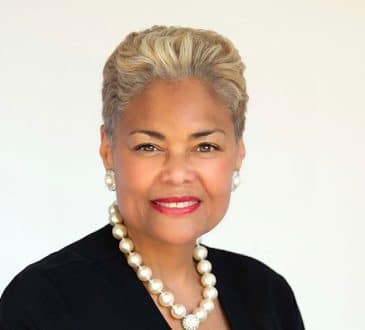The Power of the Experience in Developing Teams

With retiring boomers leaving the workplace and corporate offices filling up with millennials, we’re witnessing a shift in the workforce unlike anything seen for generations. The challenge with every generation is keeping them engaged, and the days of an individual putting in a day’s work out of a sense of pride and company loyalty are all but gone. Today, it’s all about what you can do for your employees that goes beyond the paycheck.
A key way to engage the workforce is by helping them develop their skills. Help your teams learn how to solve problems and work more effectively and they are more likely to want to use those skills for the good of your company.
Today’s workers want more than just to sit in a room and listen to a speaker talk through a slideshow. Granted, that may be part of a training event, but to truly embed new information requires more involvement—get participants up out of their chairs to use some of what they’re learning and there’s a better chance they will remember it long-term—and use it to ultimately grow your bottom line.
The way to do this is through experiential learning. Immersing your workers in an experience is a more effective way to expand their creativity, develop their skills, and build stronger teams.
As the leader of an event-design company that developed a unique experiential training program, I know the power of doing when it comes to learning new skills and building stronger teams. When you involve your team in a real-world activity with experts in your industry or in parallel industries, you can give them an edge in developing skills in such areas as: innovation, change management, collaborative leadership, and customer care.
Experiential training is about gaining real-world experience that your team members can transfer to their roles. It’s about interacting in an activity in the same or a similar industry to inspire employees to be more thoughtful in how they deliver results for your company.
With an immersion adventure, your team swaps the office for a chance to deal with real-world trends, see best practices in action, and gain new insights. By immersing them in a memorable activity or situation, you’re helping them create new memories and new sensations to draw on as they come up with creative solutions for problems you are facing. With immersion training, your team members are participants in their learning; they’re not just being told “how-to.” (Since you’re reading this, you’ve undoubtedly seen how well “telling, not showing” is working as a development tool.)
Not just any activity will do when it comes to experiential training. Designing the right type of program is about finding a way for your employees to indulge their curious natures, to use their imaginations. That starts by getting your own creative juices flowing. Here are some ideas for making that happen.
Define your goals. Begin with a discovery session to define your goals for the training. What problem are you trying to solve? Deciding what you need and want to achieve from the experience can help you define your purpose, and then use that as the framework for all decisions when planning the event. If better customer service to improve sales is the goal, then define in advance how you hope to move the dial on your bottom line by the number of new or repeat customers you gain within a certain time frame after the event.
Identify trendsetters. What organizations in your area already excel at the training you want to deliver? Maybe you are targeting better change management practices. If that’s the case, locate a few organizations or other companies that excel at change management and approach them about having your company learn from their best with a site visit. That will require advance research on your part. Then, equipped with what you find, reach out to those organizations until you find one to partner with on your idea. You’ll also need to outline in advance the overall program for the training (don’t just show up and ask for a tour). In our experience, even companies in the same or similar industries are willing to participate in experiential learning. That factor alone can provide a unique perspective to motivate and excite your team.
Make the experience memorable. Ideally, the experience should be one that is both fun and fruitful. When the team participates in an activity that speaks to them both professionally and personally, they are more likely to apply the principles learned. It’s far more enlightening to see successful tactics already being employed, for example, by having your team be part of another company’s inspiration session.
Have an ideation session. After the activity, bring your team together to talk about the experience. What did it mean to them? What ideas or inspiration did they gain? How can they apply what they learned to their role—or even another role or process—in your company?
Follow-up. Six months after the activity, assess the team and your company operations to see whether the learning is being applied. Be sure to share with the team any new best practices being used to further strengthen your operations.
Since your business relies on the skills and dedication of your team, keeping them motivated is crucial to your success. Experiential events are an investment in team-building, just like any other professional development you make available to your group. The more thought put into creating an effective program, the better the chance the team will gain positive and useful insights from the experience—and the better your chance of reaping the rewards.
Bring the best of the CEOWORLD magazine's global journalism to audiences in the United States and around the world. - Add CEOWORLD magazine to your Google News feed.
Follow CEOWORLD magazine headlines on: Google News, LinkedIn, Twitter, and Facebook.
Copyright 2025 The CEOWORLD magazine. All rights reserved. This material (and any extract from it) must not be copied, redistributed or placed on any website, without CEOWORLD magazine' prior written consent. For media queries, please contact: info@ceoworld.biz











